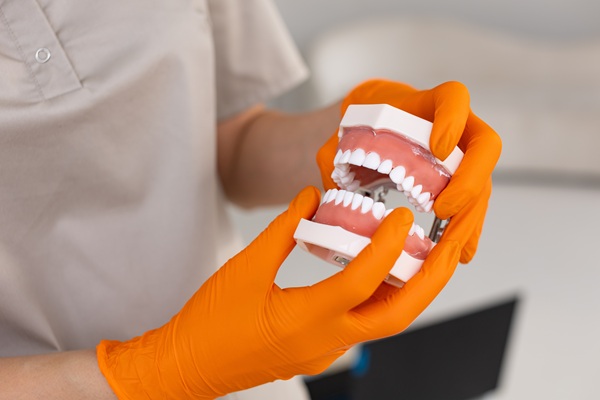When To Seek Emergency Dental Care

Knowing when to seek emergency dental care can be tricky. While many dental issues are extremely time sensitive, others can be left for months with little risk.
What requires emergency dental care?
Some tooth problems, like cavities, are slow to change. If there is no pain and the dental issue is not the result of trauma, usually treatment can wait until the next business day. However, there are some dental problems that cannot wait even a few hours. The following issues constitute emergencies.
Loose, cracked or missing teeth
If a tooth has become loosened or been knocked out entirely, it needs to be fixed immediately. The difference between being able to save a tooth and having to lose it permanently is only a few hours.
If the tooth has been knocked loose, rinse it gently in water, touching the root as little as possible. Then try to place the tooth back in its socket for the journey to the dentist’s office. If the tooth will not fit back in its socket, place it in a cup of water or milk and bring it with.
Cracked teeth may or may not be an emergency. A small chip can usually wait a few days. If large pieces of the tooth are missing or if a crack has appeared on the tooth, immediate action is necessary. Sometimes what appear to be cracks are merely “stress fractures,” a relatively harmless condition that rarely requires treatment. However, only a dentist is able to correctly tell if the tooth is in immediate danger.
Excessive bleeding or pain
Bleeding from a dental injury should be easily stopped with some gauze and light pressure. If gums continue to bleed despite these measures, it is considered an emergency.
A severe toothache is almost always cause for an immediate dental appointment. Pain typically signals an infection or tooth damage that has reached the nerve. Both are urgent issues. At-home treatments for toothache can be tried first, but if the issue does not resolve, then a dentist needs to be consulted.
Swelling
Swelling of the jaw or mouth is often a sign of an infection or abscess. These require immediate attention once they have become severe. Slight swelling or moderate pain can probably wait until normal business hours to be addressed. Anything that comes on suddenly should be seen right away.
Swelling can increase rapidly if left untreated, and swelling around the face and mouth can be particularly dangerous because of the possibility of restricting the airways. If swelling worsens or persists, do not wait to schedule an appointment.
When in doubt, call for advice
It is always better to be safe than sorry. When it is not clear whether a situation is an emergency, err on the side of caution. Schedule an emergency dental appointment or at least call for a short phone consultation. A dentist may be able to identify the severity of the issue over the phone.
Request an appointment here: https://www.lightbreezedental.com or call Light Breeze Dental at (949) 274-4719 for an appointment in our Irvine office.
Check out what others are saying about our services on Yelp: Read our Yelp reviews.
Recent Posts
Dental professionals recommend a denture reline at least every two years. However, you might need to get your dentures relined more often depending on various factors, such as the materials used for the reline and the degree of bone loss you have experienced. You need to visit a general dentist once a year to get…
Oral injuries that lead to severe bleeding in the mouth count as dental emergencies. Blood clots have a more challenging time forming in the mouth, and deep cuts in the mouth can lead to significant blood loss without the care of an emergency dentist. Waiting up to a few weeks for a regular appointment is…
A dental veneer is a popular cosmetic dentistry solution designed to enhance the appearance of teeth by improving their shape, color, and alignment. Proper care and maintenance are essential to maintain a dental veneer's longevity and aesthetic appeal. Following a few practical steps, patients can ensure their veneers remain durable and beautiful for years.Good oral…
A damaged dental crown can cause discomfort and disrupt the functionality of your teeth. Whether the crown has cracked, chipped, or fallen out, addressing the issue promptly is crucial for preserving your oral health. Dental crowns are designed to protect and restore damaged teeth, but taking the right steps can prevent further complications when they…


